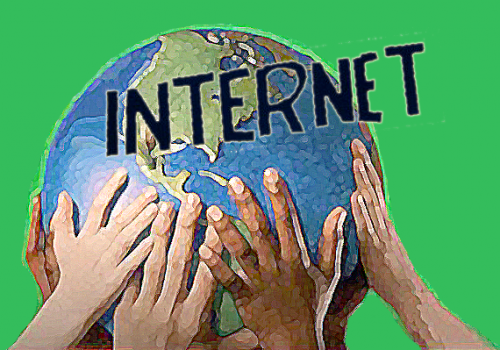A Social Forum to build a people’s Internet
- Información

While social movements and actors worldwide have integrated the Internet and cyberspace as a key dimension of their practices of work, organization and coordination, their inclusion as a topic of political and strategic debate has been, up to now, relatively marginal; an instrumental view of the Internet still predominates. At most, the debate is taking place in the realm of communications, when in fact it is also about a new dimension of economics, politics, culture and the social order, with huge implications for power rearrangements and for the future of democracy itself.
The proposal to organize a Thematic Social Forum about the Internet, presented at the World Social Forum 2015, which recently ended in Tunis (24-29 March), seeks to trace a path to expand this vision, while opening a debate towards building a common agenda on these issues.
The initiative, which already has close to a hundred organizations signed on, and received explicit support in several spaces of the WSF, states in its presentation text [i] that: "... we are alarmed to see how both our private and public spaces are being co-opted and controlled for private gain; how private corporations are carving the public Internet into walled spaces; how our personal data is being manipulated and proprietised; how a global surveillance society is emerging, with little or no privacy; how information on the Internet is being arbitrarily censored, and people's right to communicate curtailed; and, how the Internet is being militarised. Meanwhile, decision-making on public policy matters relating to the Internet remains dangerously removed from the mechanisms of democratic governance."
It also proposes that the Internet Social Forum (ISF) should be a space to discuss "the Internet we want and how to build it", that is, an Internet for the people; indeed, this is urgent "before the knowledge and access-to-information revolution is irretrievably captured by corporate interests and security agencies that will deepen the nexus of corruption between politics and money."
But, why would an Internet Social Forum be the best option? The UN World Summit on the Information Society (2003 and 2005), where civil society organizations agreed on a vision and proposals focused on communication rights [ii], defined a "multistakeholder" model for the global follow-up entities (ie involving governments, private sector and civil society). In practice, this has inhibited the creation of a specific space to develop discourse and a framework for proposals clearly located within an anti-neoliberal vision, able to criticize and generate resistance to the growing monopoly control over Internet of the big transnational corporations (Google, Facebook, Microsoft, Amazon and others). The World Social Forum appears an ideal space to do so.
Moreover, the WSF facilitates convergence with other social struggles and action agendas: among others, in Tunis the ISF initiative entered into dialogue with the convergence of resistance to transnational corporations and the convergence on the right to communicate. The International Council of the WSF is including the ISF in its calendar of activities for next year.
In Tunis, the organizing bodies of the workshop on "Organizing an Internet Social Forum - A call to occupy Internet" extended the invitation to other organizations that share the WSF Charter of Principles [iii] to join the initiative, under the modality of an open and democratic space. Among the first things to consider will be the definition of the place, date and mode of organization of the ISF.
Del mismo autor
- Los 100 de don Pablo 13/02/2022
- A social pact for education 17/03/2021
- Un pacto social por la educación 05/02/2021
- Forum social mondial virtuel 2021 19/01/2021
- Foro Social Mundial Virtual 2021 19/01/2021
- Virtual World Social Forum 2021 19/01/2021
- Julian Assange e o julgamento da liberdade de imprensa 12/01/2021
- Julian Assange and the trial against press freedom 05/01/2021
- Julian Assange y el juicio a la libertad de prensa 04/01/2021
- Ola Bini case: Judge denies annulment of trial 16/12/2020
Clasificado en
Comunicación, FSM
- Jorge Majfud 29/03/2022
- Sergio Ferrari 21/03/2022
- Sergio Ferrari 21/03/2022
- Vijay Prashad 03/03/2022
- Anish R M 02/02/2022








